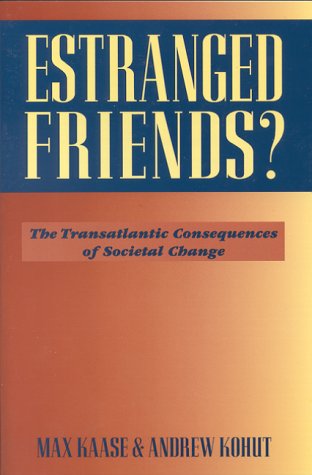After an extended period of relative security and certainty, the transatlantic partnership presently faces a series of challenges and tests of its stability and reliability. Europe is in the middle of a historic process in which the framework and the factors that determine foreign policy, as well as the foreign policies themselves, are subject to fundamental change. Similarly, the United States is currently in search of a new role in a changed international environment. Published in cooperation with the Bertelsmann Foundation, this book examines the fundamental foreign policy attitudes of both ordinary citizens and elites on both sides of the Atlantic. In his essay, Max Kaase provides a thorough and precise analysis of the basic social preconditions that underlie the formulation and establishment of a new foreign policy. On the basis of representative surveys, Andrew Kohut provides a detailed and comprehensive description of the attitudes and values of American citizens and elites with regard to the global role of the United States. The authors conclude that established common interests continue to form a link between the transatlantic partners. The structures that helped to overcome the Cold War and successfully prevent the outbreak of an open conflict still survive. Nevertheless, the authors stress the necessity for future transatlantic coordination and action. Without intensive consultation and cooperation, there is a risk that the mature partnership will degenerate into narcissism and relapse to the level of national selfishness. Published in cooperation with the Bertelsmann Foundation.
- ISBN10 0876091850
- ISBN13 9780876091852
- Publish Date 1 March 1996
- Publish Status Out of Print
- Out of Print 19 December 2011
- Publish Country US
- Imprint Brookings Institution
- Format Paperback
- Pages 110
- Language English
